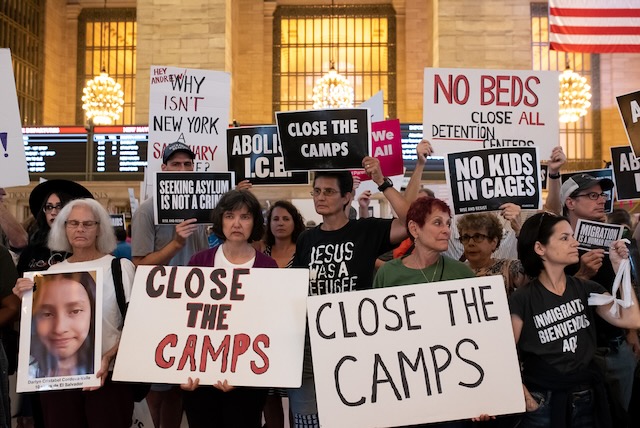First, an apology. To those of you who read my previous posts, I apologize for the long period of my silence. Recent events have moved me to write this post and to write more often.
It is way past time that we stop for a moment to look at ourselves in the mirror. It is time for us to think about our culture, our society, our government, what we have made of them, and how we did so. This will not be an exercise in blame or complaint but rather one seeking to find a basic principle that may lead us to make improvements.
What do I see when I look in society’s mirror? I see that people are fearful, angry, disconnected from others and from reality. People believe crime is exploding, when in reality it is not. People believe that crime is rampant in certain parts of the country, when in reality it is much higher in other parts of the country. People believe that the medical community robbed them of their freedom when in reality they were trying to save them from having refrigerated trucks to hold the dead on every corner of America.
We have made it easy to buy, carry, and use devices whose sole purpose is to end another person’s life. Increasingly, we have protected people who shoot first and ask questions second.
We are creating disdain for groups of people who want nothing more than the right to live according to our founding document granting them the right to “life, liberty, and the pursuit of happiness”. We are passing laws motivated by hatred. We are banning books and when prevented from doing so, so we are trying to ban libraries.
People are afraid of their neighbors and for their futures. In the last few days young people have been shot for driving down the wrong driveway, knocking on the wrong door, trying to get into the wrong car.
Many of our leaders are not only not attempting to calm the situation, but instead are actively fomenting, dread and disdain. Compassion has disappeared. Empathy is missing in action. Our ability to identify with other human beings has evaporated.
How have we gotten here? Where have you gone wrong? It would be easy to blame certain individuals. It would be easy to blame certain movements. But that would be too easy and would miss taking account of a fundamental truth; people act accoridng to their perceived incentives. They act in accordance with their nature.
My thought today is about rewards, punishments, and incentives. People are not as complicated as we think they are. They usually behave in a way that reflects on their need to feel good about themselves, the need to feel connected to the people in their groups, and in a way that is commensurate with what they are being told by people that they trust.
If we have learned anything from the past few years of national politics and from the past few weeks of the lawsuit brought by Dominion against Fox, it is that we have, as a society, every incentive to lie and almost no incentive to tell the truth. We benefit from creating distrust and fear. I believe that these incentives, more than any others, are behind the disintegration of our culture.
Our society rose to greatness by trusting people who spend their lives, studying, learning, researching, taking care of others, and fighting for the common good. In recent years, we have been taught not to trust because, for the people teaching us not to trust, this lack of trust of others is good for their business.
Upton Sinclair famously, said: “it is difficult to get a man to understand something, when his salary depends on his not understanding it.” One can write many corollaries this important insight, but the basic lesson is that if there is money to be made by lying and by breeding fear, hatred, and decreasing trust in institutions, there will be people who will gladly take up that task.
It is hard to know where our society is heading but it is also hard to be optimistic that in the short to middle term, things will get better without a major change in our incentive structure. We must demand that our laws incentivize cohesiveness. We must demand that our leaders model behavior that is tolerant, peaceful, and that benefits society. We must demand that our leaders refrain from hateful speech.
There are simple steps we can take. Stop using social media platforms that promote hatred and misinformation. Instead, turn to platforms that demand civility and truth, even if, for the short term, you lose followers and readers. Vote only for politicians who model behavior we wish to inculcate in our children, including empathy, caring, healing, trust. Turn away from leaders who make us feel good by denigrating people we don’t like or do not see as members of our group. Demand that our media tell the truth or suffer a loss of revenue. (Why, for example, are people forced to pay for a cable network that they don’t watch, and that is pushing us toward hatred and violence?) Demand that the media we consume state what is right and wrong rather than pretending that there must be two sides to every argument. Demand that our media publicize their mistakes and apologize for them, just as we apologize for our own mistakes.
Not long ago, a difference in culture and values drove our country to split apart and engage in a bloody war. We are fighting that war still. Unless we fix our incentives, it will get bloodier still. We can hope for little help from leaders that are using the current climate of fear and hatred and loathing to further advance their careers. Instead, we must demand that those of our leaders who’s hearts are in the right place, who want to repair our culture, or respect for others, and our rights to exist in peace do what is necessary, even it is difficult. They might find themselves forced to act in nontraditional ways, but if they don’t do the hard work to repair our society’s incentive structure we will continue down the road to disaster.

